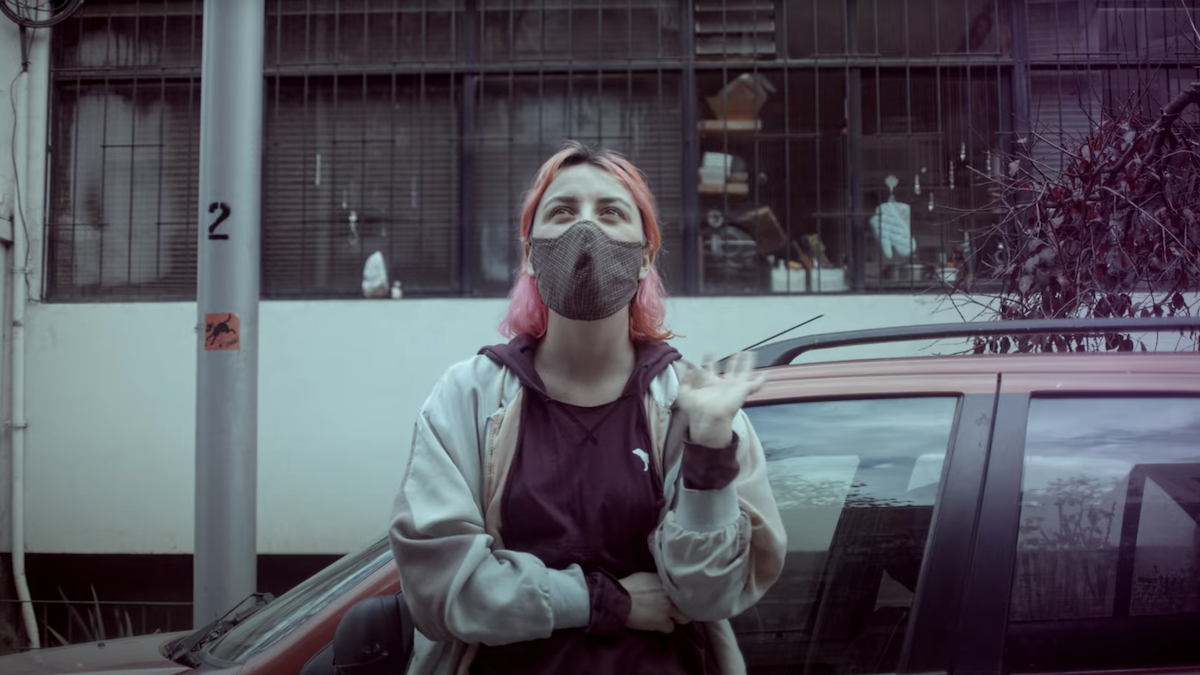At the onset of the pandemic, a group of producers came up with an idea: challenge directors from around the world to make a short film under the constraints of quarantine. More than just flexing creative muscles, the project would document the collective trauma of COVID-19 from a handful of personal perspectives. The producers recruited seven directors and set some ground rules: shoot only in permitted quarantine spaces, keep cast and crew limited, and relate the stories to the pandemic at least tangentially. The Year of the Everlasting Storm is the result of their work—an anthology of short films born of global tragedy.
It’s not all gloom and doom. The filmmakers involved are all acclaimed names in the avant-garde scene, so their shorts were going to be anything but straightforward. Iranian director Jafar Panahi—who once directed a documentary in secret while he was under house arrest—inevitably takes the assignment most literally, once again documenting the prison walls of his home from a cell phone camera. Gazing at a quotidian Armageddon from the inside out, Panahi’s short is not unlike what any other housed person would produce given the same directives (though it’s obviously been edited with professional tightness). Panahi ushers the anthology in with experiences we’re bound to recognize.
MORE PHOTOS: COVID-19 cases in Arizona skyrocket 295% in August
The remaining shorts vary in sophistication. Anthony Chen and Dominga Sotomayor—filmmakers from Singapore and Chile, respectively—go the short story route, telling subdued, bite-sized tales of relationships complicated by the pandemic. They’re well-made, but a little slight, wearing out their welcome just as their 15 to 20 minutes are up. On the opposite end of the complexity spectrum, we have Laura Poitras, a New York-based documentarian who helped break the Edward Snowden story. Her entry is a mid-investigation mini-doc about NSO Group, the Israeli arms firm whose spyware was integral to the murder of Saudi dissident Jamal Khashoggi. What does that have to do with the pandemic? Turns out NSO Group is using their spyware to get a leg up on COVID contact tracing, and even selling the technology to American police forces. It’s a fascinating but horrifying peek at how the powerful exploit disaster. By the time Poitras’ segment is ending, you’ll wish she would just grab the reins from there on out.
Such are the cracks in the film’s structure. Vacillating between varied methods of capturing the pandemic, Everlasting Storm has a hard time coming together. A couple directors are a word away from being on an entirely different page. David Lowery, the Texan auteur behind The Green Knight, nails the sense of apocalyptic dread that both the pandemic and his previous films generate—but his typically oblique approach treats COVID like an afterthought, slipping mentions of the virus into a story that would function the same without it. That’s no flaw in and of itself, but it feels out of step with the preceding acknowledgments of the pandemic. Without a more defined through-line, the film is ultimately more evocative of artistic versatility than human responses to COVID.
Still, that’s no small thing. In the case of Apichatpong Weerasethakul—the Thai visionary whose short closes the anthology—seeing an artist’s reaction to global cataclysm is mystifying and transfixing, like hearing the Greek Muses change key as the Titanic sinks. But on the whole, The Year of the Everlasting Storm feels more like a short film reel at a festival than a true portmanteau.
★★★ (3/5)




